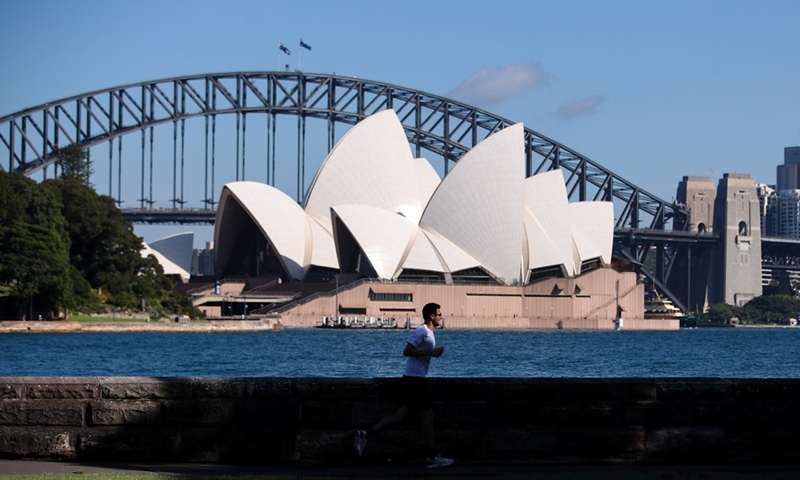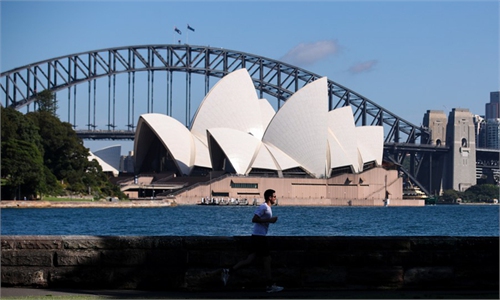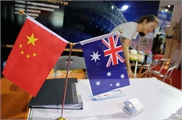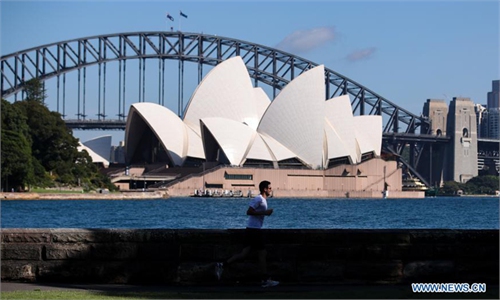Australia service sector drop in Jan should be partly result of Chinese tourist frustration: expert

A man runs in a park opposite the Sydney Opera House in Sydney, Australia, on Feb. 26, 2021.(Photo: Xinhua)
Australia's trade surplus increased by $3 billion to $10.142 billion in January in seasonally adjusted terms, with goods exports recovering but services sector taking a drop, according to data released by the Australian Bureau of Statistics on Thursday.
Experts have stated that frustration among Chinese students and tourists is a likely contributor to the lackluster recovery of Australia's service market.
According to the data, during the month, goods and services exports rose by 6 percent year-on-year to $39.85 billion in Australia, while imports fell two percent to $29.71 billion.
In particular, Australia's service sector, which includes transport and travel, slipped slightly in January. Over the month, its total services credits from exports dropped by around 3 percent to $4.96 billion, while tourism-related services credits dropped by around 10 percent to $2.25 billion.
Ning Tuanhui, a research assistant at the China Institute of International Studies, said an increasing frustration among Chinese students and tourists, underlined by a recent survey, is casting a shadow on the recovery of Australia's tourism and education sectors, potentially taking away one of the growth drivers that could serve the recovery of Australian travel and education market.
In comparison, goods exports have recorded a stronger recovery, as Australia's total goods credits increased by 8 percent in January compared with the previous month.
The data didn't show exactly how Australia's trade or services to China evolved in January.
China's National Bureau of Statistics has not yet released data on Australia-bound in January. Last year, China's exports to Australia rose 10.9 percent year-on-year, while imports dropped by 5.3 percent on a yearly basis.
Although China and Australia's trade has been subject to the two country's political deadlock, beams of hope have emerged for a recovery in their trade relations. For example, China has recently lifted import quota on Australian wool by about 5 percent, according to media reports.
A South China Morning Post report also noted that the Chinese government is facing pressure to lift its ban on Australian coking coal and copper concentrates due to a dearth of steel materials.
Global Times



